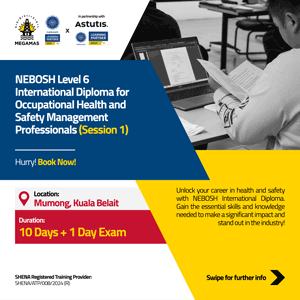Mental Health Day, observed earlier this month on October 10, emphasised the pressing need to address mental health issues in the workplace.
In a climate characterised by rising inflation and ongoing global political and economic unrest, the importance of mental well-being in professional settings is more critical than ever.
For many individuals, their jobs provide not only financial security but also a sense of purpose and community.
However, as the pressure to perform intensifies, the phrase “putting your nose to the grindstone” takes on new significance.
The relentless demands of work can lead to burnout, stress, and anxiety, underscoring the necessity for both employers and employees to prioritise mental health.


In a recent message, United Nations (UN) Secretary-General António Guterres highlighted that “safe and healthy working environments are essential to mental well-being”. He noted that within the UN, personnel work diligently on some of the world’s most urgent challenges, often under significant pressure and in high-risk environments far from home.
“This can take a toll on our mental health,” he stated, reminding us that mental health is not solely an individual struggle but a collective responsibility.
The UN secretary general encouraged individuals to reach out to their colleagues and seek help whenever necessary, stressing the importance of breaking the stigma surrounding mental health.
“We must foster an open and supportive environment and utilise every available resource,” he urged.
The UN System Mental Health and Well-being Strategy for 2024 and beyond aims to provide effective tools to mitigate mental health risks, promote mental well-being in the workplace, and support employees facing mental health challenges.
“As we care for ourselves and our colleagues, we enhance our ability to care for the world and deliver on our vital work.”
In Brunei Darussalam, the demand for mental health services has surged dramatically, with 13,246 individuals seeking psychiatric, psychological, and community support between 2023 and 2024.
This represents a significant 17 per cent increase compared to previous years.
Recent statistics from the Ministry of Health (MoH) reveal that approximately 11,000 people are currently receiving mental health care, with new cases emerging at an alarming rate – 118 adults and 127 children diagnosed annually.
The workplace has emerged as a critical battleground for mental well-being, where escalating job stress, burnout, and instances of bullying contribute to the growing crisis.
Clinical Psychologist and Head of Mental Health Strategy at the Health Promotion Centre within the MoH, Nor Syahmun binti Haji Matassan shared that while there is concern over the increasing number of individuals seeking treatment for mental health issues, she also noted a positive trend: more people are now willing to seek help, treatment and support.
During the opening of last month’s Knowledge Convention, which centred on mental health, His Majesty Sultan Haji Hassanal Bolkiah Mu’izzaddin Waddaulah ibni Al-Marhum Sultan Haji Omar ‘Ali Saifuddien Sa’adul Khairi Waddien, Sultan and Yang Di-Pertuan of Brunei Darussalam, outlined the government’s ongoing initiatives to tackle mental health issues.
He highlighted the increase in psychological officers and the extension of Talian Harapan 145 – the mental health helpline – to 24-hour availability, measures that are vital for providing continuous support to those in need. In line with this, there will be ongoing collaboration between health and religious authorities, recognising the integrated efforts of various stakeholders, including government agencies and non-governmental organisations (NGOs).
One notable initiative is the Workplace Mental Health Roadshow, which educates ministries and departments about mental health from both Islamic and scientific perspectives. Further reflecting on current initiatives, he pointed out that a key action in the National Mental Health Action Plan 2022-2025 is the Basic Mental Health Training Programme for community leaders, specifically targeting imams, ustaz, and dai’e.
This programme, developed in partnership with health and religious authorities, aims to blend scientific treatment with spiritual guidance, reinforcing the importance of holistic approaches to mental health in Brunei.
This newfound openness signifies progress in addressing the stigma that has historically surrounded mental health issues in the country, paving the way for a more supportive environment.
By continuing to promote mental health awareness and resources, Brunei can cultivate a more resilient society, equipped to face the challenges of mental well-being in all aspects of life, particularly within the workplace. – Wardi Wasil




